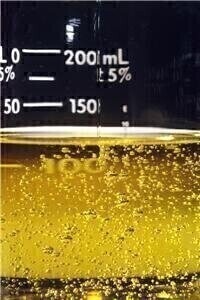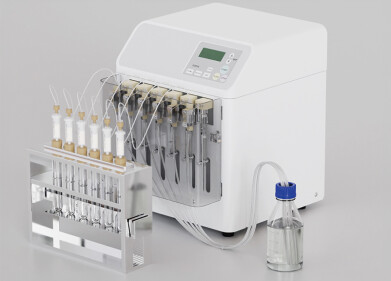Solid phase extraction (SPE)
Using SPE Combined with GC/MS in Biodiesel Analysis.
Feb 09 2023
The use of biofuels, such as biodiesel, has been on the rise in recent years as a way to reduce dependence on fossil fuels and decrease greenhouse gas emissions. However, as the use of biodiesel increases, it becomes increasingly important to have accurate methods for identifying and quantifying its presence in diesel fuel blends. One such method is the use of solid-phase extraction (SPE) combined with gas chromatography-mass spectrometry (GC/MS).
SPE is a technique used to purify and isolate specific components from a sample, while GC/MS is a method used to identify and quantify those components. When used together, these techniques allow for detailed chemical fingerprinting of biodiesel/petrodiesel blends. The method involves the separation of fuel samples into four fractions: aliphatic, aromatic, fatty acid ester, and polar components. This method provides excellent separation of components with different polarities, making it a useful tool for the identification of biodiesel in diesel fuel blends.
The potential of this method extends beyond just identifying biodiesel in diesel fuel blends. It could also be used as a basis for a method for characterization of biodiesel-contaminated environmental samples. This is particularly important as biodiesel usage increases, as it is important to understand and monitor any potential environmental impacts.
Several companies, such as Agilent Technologies, Thermo Fisher Scientific, and Shimadzu Corporation, provide SPE and GC/MS equipment and methods for fingerprinting of biodiesel blends. These companies offer a wide range of products and services for the analysis of biodiesel, including sample preparation, chromatography and mass spectrometry systems, software for data analysis, and technical support.
Overall, the method of using SPE combined with GC/MS has great potential for identifying and quantifying the presence of biodiesel in diesel fuel blends. The use of these techniques allows for accurate chemical fingerprinting, making it a valuable tool for monitoring the use and potential environmental impacts of biodiesel. And several companies offer the technology and services for using this method.
More information online
Events
Apr 22 2025 Kintex, South Korea
Analytica Anacon India & IndiaLabExpo
Apr 23 2025 Mumbai, India
Apr 27 2025 Portland, OR, USA
May 11 2025 Vienna, Austria
May 18 2025 Tempe. AZ, USA













